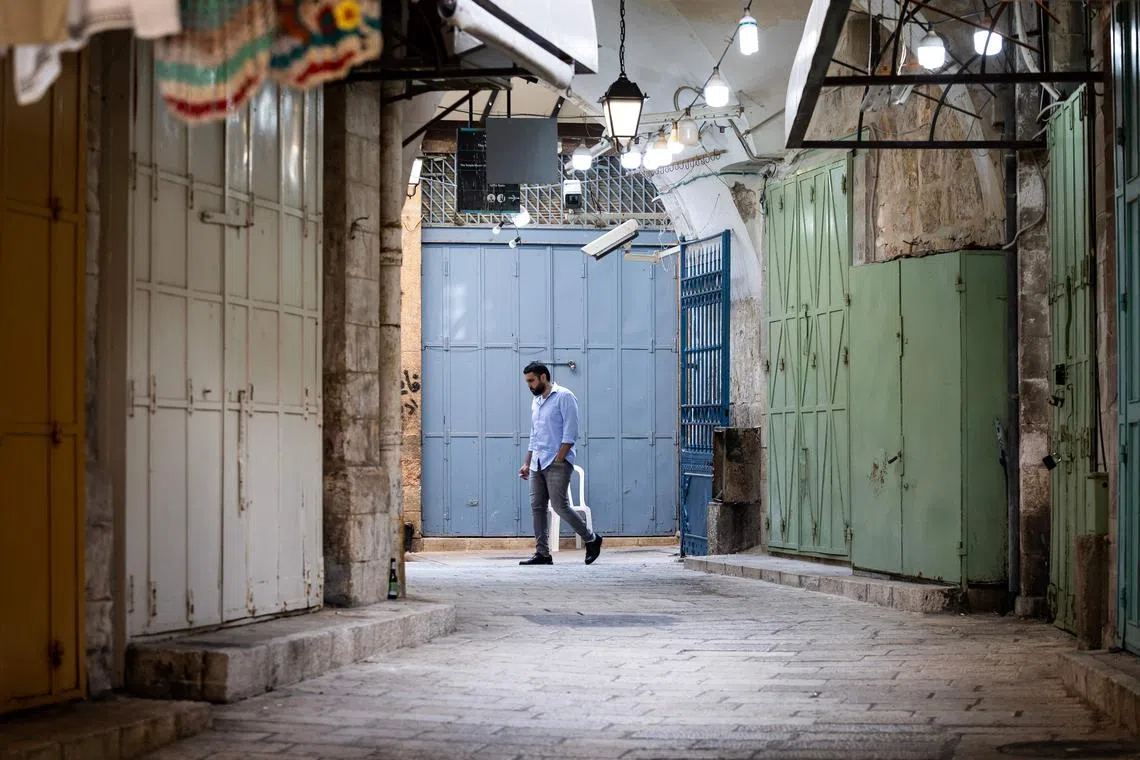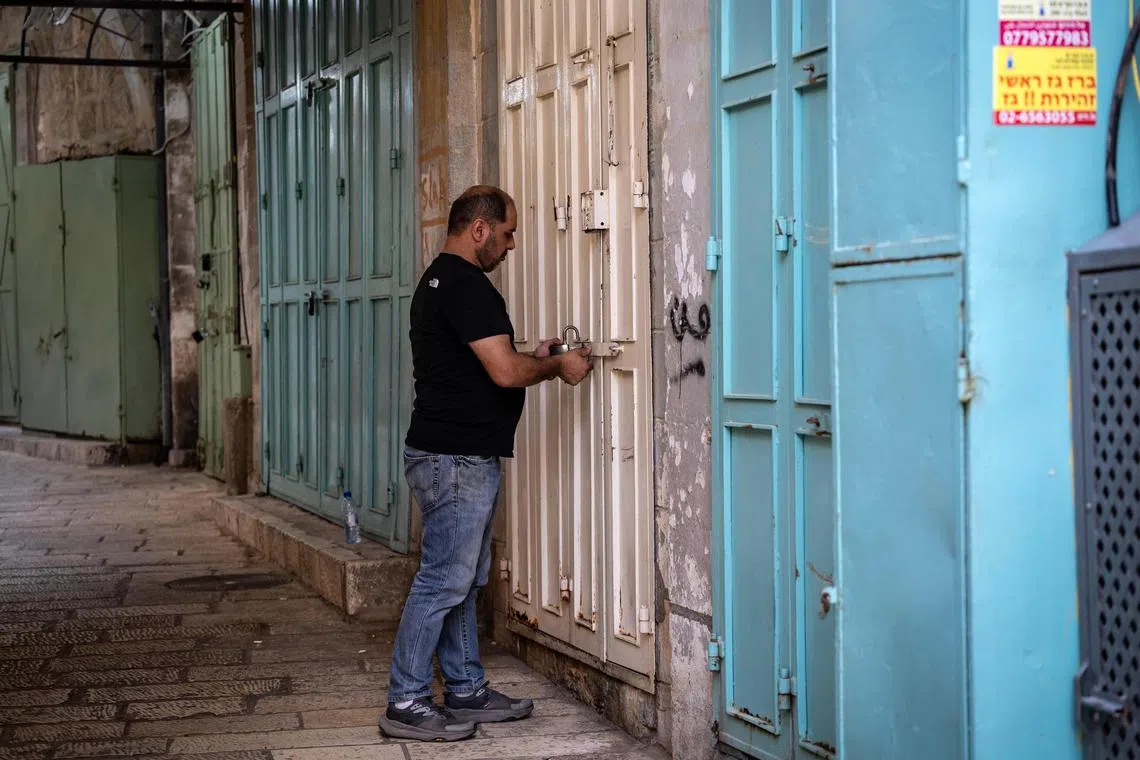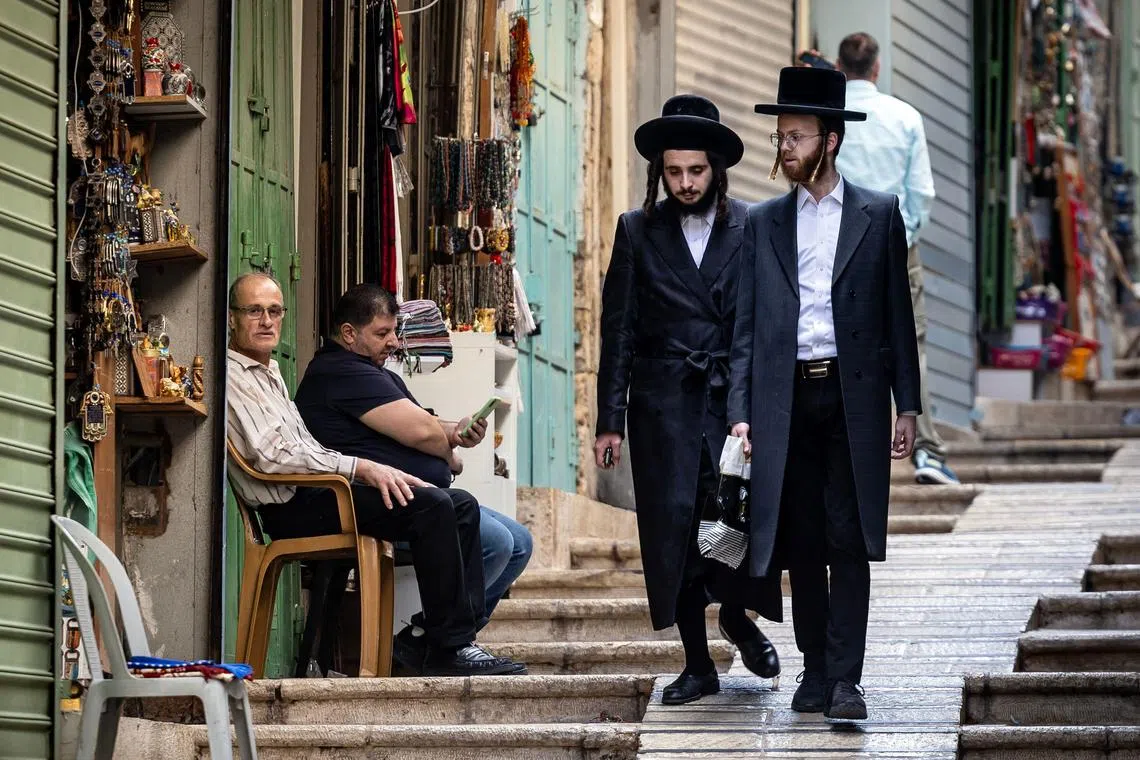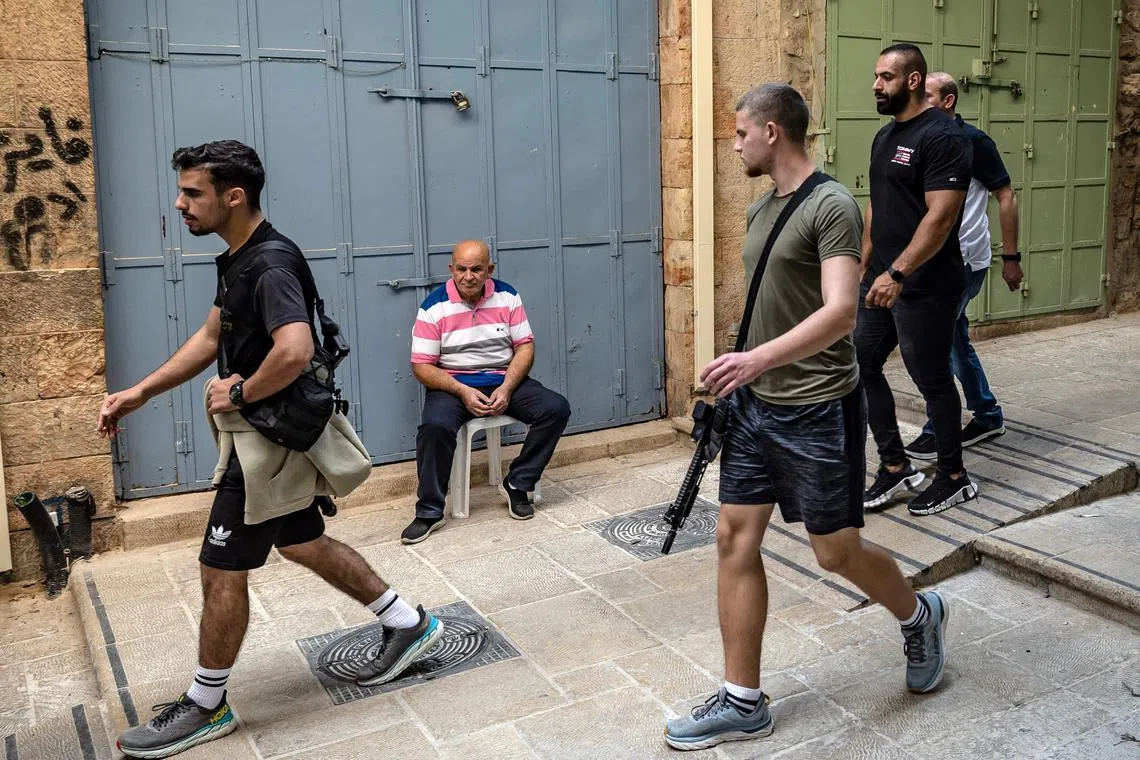‘No income, no life’: Jerusalem’s Old City suffers as war rages
Sign up now: Get ST's newsletters delivered to your inbox

A man walking in the empty alleys of Jerusalem’s Old City.
PHOTO: AFP
Follow topic:
JERUSALEM - The once-bustling streets of Jerusalem’s Old City have fallen eerily quiet, with the ongoing war between Israel and Hamas
In the maze-like warren of shopping streets that surrounds the city’s holy sites, most businesses remain shuttered, nearly four weeks into the war.
The few remaining shopkeepers brave enough to open their stores wait, day after day, for tourists who have yet to return.
“There is no tourism industry anymore,” said Mr Marwan Attieh, 48, a third-generation tour guide and souvenir shop owner. “We have families, we have children... (There is) no business, no income, no revenue, no life. How can you spend money if you don’t have money?”
The walled Old City in annexed east Jerusalem is home to some of the holiest sites for Christians, Jews and Muslims, and has drawn pilgrims and travellers for centuries.
Yet, Jerusalem’s lucrative tourism sector has all but collapsed since Oct 7, when Hamas militants from Gaza stormed across the border in an attack that killed at least 1,400 people, according to Israeli officials.
Following the onslaught, Israel has struck back hard at the Hamas-controlled Gaza Strip
The Church of the Holy Sepulchre, where most Christians believe Jesus was crucified and buried, stood largely empty on Thursday, other than the occasional priest stirring in its cavernous halls.
“Before, this place was really alive, full of people praying and offering their problems to God and in general very spiritual,” said Mr Pietro Mazzocco, a 31-year-old Italian seminary student studying in Jerusalem. “And now it’s completely empty, as you can see here. There are no people.”
While many flights to Israel have been suspended and tour packages cancelled, a few tourists managed to reach the largely deserted Old City.

A Palestinian man locking the door of a shop in the empty alleys of Jerusalem’s Old City.
PHOTO: AFP
Mr Rachid, a 24-year-old French tourist, refused to cancel his trip to Israel, saying he wanted to see the situation on the ground with his own eyes.
He arrived earlier this week via the land border from Jordan, following lengthy interrogation sessions by Israeli authorities.
“It’s a bit weird, nobody is in the streets,” he told AFP, adding that he had been stopped several times by Israeli police since arriving.
“People are afraid on both sides,” he shrugged. “People are sensitive. They don’t know who I am or where I’m from.”

Ultra Orthodox Jewish men walking past Palestinian shop owners waiting for clients in the empty alleys of Jerusalem’s Old City.
PHOTO: AFP
Besides the tourism bubble, daily life has also taken a hit.
Attendances at Friday prayers at the Al-Aqsa Mosque are down, while checkpoints and patrols in occupied east Jerusalem have been beefed up.
Many residents of the mostly Palestinian-populated Old City are afraid to leave their homes, citing harassment and physical violence by Israeli security forces.
In the nearby West Bank, the number of deaths of Palestinians has surged amid a flurry of Israeli operations, with more than 130 killed in clashes with the military and settlers.
On Wednesday, a general strike was called in solidarity with the residents of the besieged Gaza Strip, with businesses closing across the West Bank, including east Jerusalem.
On Thursday, many shop owners declined to speak to AFP out of concern for their personal security.
“It’s a dangerous time. It’s not safe,” said Mr Emad Sideyyi, a shopkeeper in the Old City.
“The soldiers, they kick everybody,” he said. “They don’t deal in a good way with people.”

An Israeli off-duty soldier walking with a rifle in the Old City of Jerusalem.
PHOTO: AFP
For most, the war cannot end soon enough.
But with Israeli Prime Minister Benjamin Netanyahu vowing that a ceasefire with Hamas remained off the table, despair appears only to be deepening.
“We hope to have peace for everybody,” said Mr Sideyyi. “We don’t want to kill each other like animals. We need to live.” AFP

